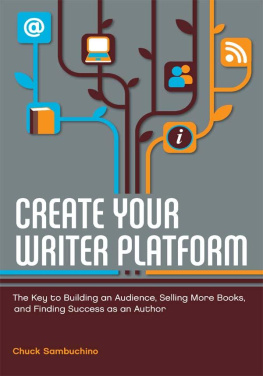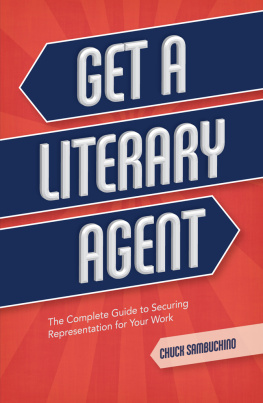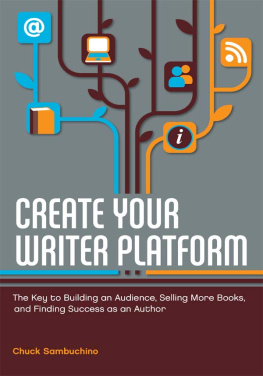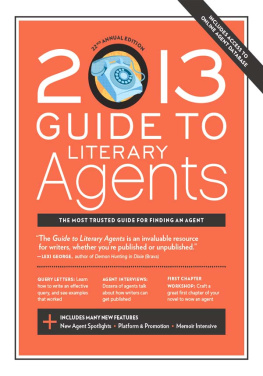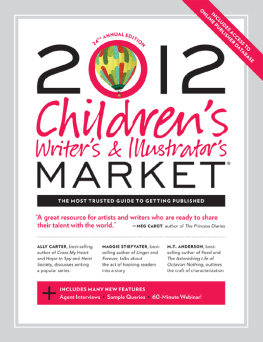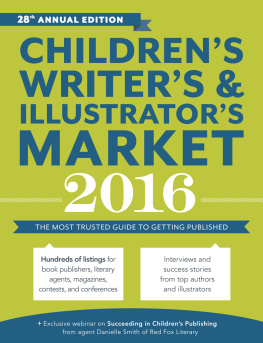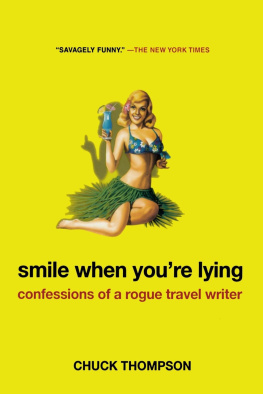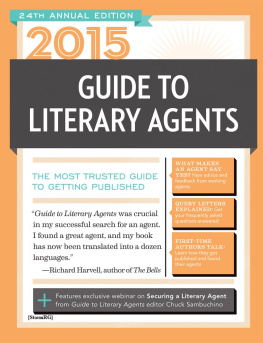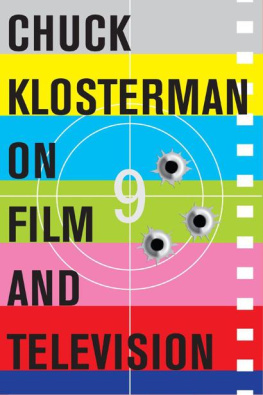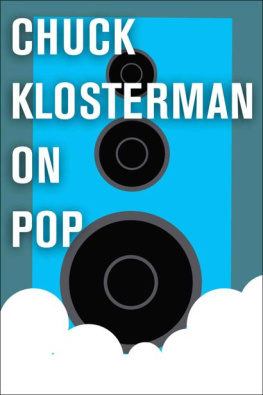Chuck Sambuchino - Create Your Writer Platform
Here you can read online Chuck Sambuchino - Create Your Writer Platform full text of the book (entire story) in english for free. Download pdf and epub, get meaning, cover and reviews about this ebook. year: 2012, publisher: Penguin, genre: Art. Description of the work, (preface) as well as reviews are available. Best literature library LitArk.com created for fans of good reading and offers a wide selection of genres:
Romance novel
Science fiction
Adventure
Detective
Science
History
Home and family
Prose
Art
Politics
Computer
Non-fiction
Religion
Business
Children
Humor
Choose a favorite category and find really read worthwhile books. Enjoy immersion in the world of imagination, feel the emotions of the characters or learn something new for yourself, make an fascinating discovery.
- Book:Create Your Writer Platform
- Author:
- Publisher:Penguin
- Genre:
- Year:2012
- Rating:3 / 5
- Favourites:Add to favourites
- Your mark:
- 60
- 1
- 2
- 3
- 4
- 5
Create Your Writer Platform: summary, description and annotation
We offer to read an annotation, description, summary or preface (depends on what the author of the book "Create Your Writer Platform" wrote himself). If you haven't found the necessary information about the book — write in the comments, we will try to find it.
Create Your Writer Platform — read online for free the complete book (whole text) full work
Below is the text of the book, divided by pages. System saving the place of the last page read, allows you to conveniently read the book "Create Your Writer Platform" online for free, without having to search again every time where you left off. Put a bookmark, and you can go to the page where you finished reading at any time.
Font size:
Interval:
Bookmark:

CREATE YOUR
WRITER PLATFORM
The Key to Building an Audience, Selling More Books, and Finding Success as an Author
Chuck Sambuchino

DEDICATION
To every writer who struggles toward a goal
and hopes tomorrow will bring something great.
You are not alone. This book is for you.
The first person to thank is my wife, Bre, for all her love and encouragement. She is my rock and my light.
Next I want to thank all those who had a hand in making this book a reality. My agent, Sorche Fairbank, is a wonderful guide for all my projects. My editor, Rachel Scheller (who sits right next to me at work), did a great job making this book better. I want to thank Phil Sexton, publisher of Writers Digest, for helping me get this book off the ground, as well as designer Claudean Wheeler for her great cover. Wise publishing professionals Brian A. Klems, Alexis Grant, Patricia V. Davis, Ricki Schultz, and Mare Swallow all helped me shape chapters as I went along. Their advice was invaluable, and I am very grateful. Publishing wise man Robert Brewer contributed several sidebars to the guide. Thank you, Robert.
I owe a great debt of gratitude to all the literary agents who contributed quotes and all the authors who participated in interviews. The agents who helped me were Stephany Evans, Meredith Barnes (now a publicist), Gina Panettieri, Verna Dreisbach, Roseanne Wells, Alyssa Reuben, John Willig, Shawna Morey, Bernadette Baker-Baughman, and Laurie Abkemeier. Publicists and editors who chimed in and deserve a shout-out include Hector DeJean, Beth Gissinger, and Lisa Laing. Lastly, to all the case study authors who took so much time to explain their routes to success, I say thank you. Everyone reading this guide should go out and buy their books. These are authors who love helping other authors.
To all the other writers and publishing pros who contributed quotes or answered my questions, I am in debt to you.
As a teacher of writing and publishing, I speak at a dozen writers conferences a year. At those conferences, if I had to pick the question Im asked most frequently, it would probably be: How do all the drastic changes to the publishing industry affect aspiring writers?
Before I answer, lets examine the question itself. Writers are essentially asking, Because the marketplace is changing, and Ive been told its more difficult to be an author today than it was ten or twenty years ago, how can I best be prepared as a writer? All kinds of things are at play in this question: How can we work smarter? How can we deal with industry evolution? How can we make our writing dreams come true?
Youre starting to see that this is a huge questionbut, in my opinion, a very necessary one. Its necessary because the fears behind it are absolutely justified: It is more difficult to be a successful writer now than in decades past. The ease of publishing e-books online means that more books are created now than ever before. That means more competition for younot to mention fewer brick-and-mortar bookstores, where buyers can see your work. And sure, people are reading a lot these days, as many news articles have pointed outbut that doesnt necessarily mean theyre buying books, which is what matters most to authors.
In years past, my stock answer to this question was always, Just create the best book you can. In other words, I would encourage writers to simply write, and let a publishing house worry about how best to distribute their work and maximize e-book potential in a changing industry. But now my answer has changed. Today, when presented with this huge question, my reply is, First, just write the best book you can. Second, take steps to build your writer platform.
How did a strange term like platform find its way into my answer? Lets rewind for a moment.
Because of the gravitation toward free content online, industry layoffs (hitting editors and publicists the hardest) and a slew of other factors, publishers are taking fewer chances with new writers because, simply put, their budgets cant support it. To combat dwindling sales numbers, publishers have turned to defensive tactics, such as printing fewer copies of books. But the other thing theyve begun to do to protect themselvesand the reason youre holding this bookis that theyve also started to take a close look at each writers platform. With so many books in the marketplace and few publicists to help promote, the burden now lies upon the author to make sure copies of his or her book fly off bookshelves. In other words, the pressure is on for writers to act as their own publicists and chief marketersthough few can do this successfully.
Now, authors need more than good book ideas; they must be perceived by publishers as being entrepreneurial, promotion-minded, and willing to aggressively market their books. To make those determinations, publishers look to an authors platform.
RICK FRISHMAN AND ROBYN FREEDMAN SPIZMAN, from their book, Author 101: Bestselling Book Proposals
Having an effective writer platform has never been more important than it is right now. Its because a writer platform is one of the best tools (if not the only tool) a writer can use to personally combat publishing challenges. Yes, its hard to get a book published and make sure it sells once its out thereso whats a writer to do? The first thing you can do is simply get back to basics. If you write a damn good book, people will pay it mind, sure. But if that book is nonfiction, a damn good book wont cut it. You need to prove that people will buy it by showing a comprehensive ability to market yourself through different channels such as social networking sites and traditional media. If you cant do that, a traditional publisher wont even consider your idea. Ill repeat that for emphasis: If you dont have a proven ability to promote your work and sell books, editors wont even consider your idea, no matter how clever or timely it may be.
If you want to write a nonfiction book, you must have a platform in order to get editors to consider your work. If youre writing fiction or memoir, a platform isnt mandatory, but it will certainly help your chances (especially with memoir)and it translates to more book sales and money for you once your title is released. And with the way things are trending, who knows? In five or ten years, a writer platform may be mandatory for any book. Thats why its so vital to start thinking about platform now, and thats the reason why I sat down to write this book. I wanted to create a guide for all the hardworking writers out there who want a say in their own destinies. This book is for scribes who want to do everything they can to invest in their work and guarantee themselves success. It is not for a writer who puts his first chapter on a brand new website and sits back, wondering why editors arent banging down the door with a six-figure offer.
The instruction of Create Your Writer Platform is three-fold. The first thing you will learn, in detail, is what platform means, why its important, and how utilizing broad principles will help you succeed no matter what specific path you choose. The second section of this book illuminates the nuts-and-bolts steps of how you can build up your own platform through any number of means, be that public speaking or social media or creating a blog. In the final portion, you can read case studies of those who have built their platforms from the ground upto hear expertise from a variety of sources and journeys.
Font size:
Interval:
Bookmark:
Similar books «Create Your Writer Platform»
Look at similar books to Create Your Writer Platform. We have selected literature similar in name and meaning in the hope of providing readers with more options to find new, interesting, not yet read works.
Discussion, reviews of the book Create Your Writer Platform and just readers' own opinions. Leave your comments, write what you think about the work, its meaning or the main characters. Specify what exactly you liked and what you didn't like, and why you think so.

